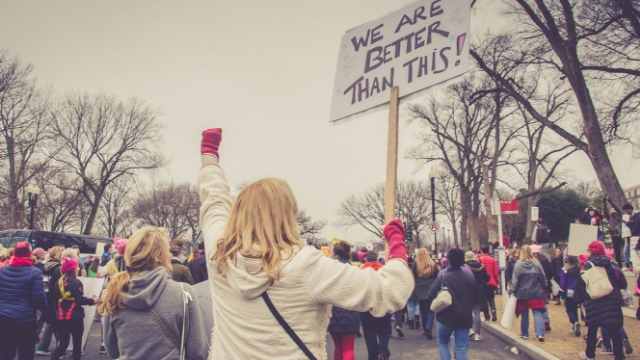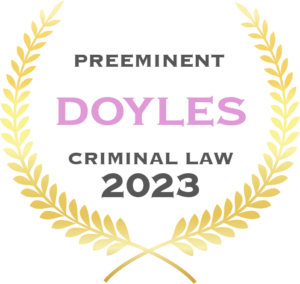Similar protests were carried out across the nation, with major protests also occurring in NSW and Queensland.
Nine people were arrested in NSW after police had to physically carry them from an abattoir in Goulburn.
Protesters have been charged with a range of offences, including obstructing police, obstructing an emergency worker, assaulting police and drug possession.
Tensions between animal liberationists and farming industry stakeholders have long been the subject of controversy in Australia.
Protesting and the law
Lawful protests are arguably a defining feature of liberal democracy.
However, in NSW, there are a number of laws that may impact the way protests are performed.
Trespass
It is an offence to enter land unlawfully or to remain on land without lawful excuse once you are asked to leave.
The offence is governed by section 4 of the Inclosed Lands Protection Act.
In the event that the individual accused of trespass believes that their entry was lawful, they will bear the burden of proving this.
In most cases, the maximum penalty for this offence is a $550 fine. However, if the trespass occurs on prescribed premises (such as a hospital, school, childcare service or nursing home) the penalty may increase to $1,100.
Destroy or damage property
Any person who intentionally (or recklessly) destroys or damages someone else’s property is liable for an offence. The maximum penalty for the offence is 5 years imprisonment (or 10 years if the destruction or damage is caused by fire or explosives).
The meaning of the term “damage” (in the context of this offence) was the subject of a High Court case earlier this year.
The case, Grajewski v DPP, required the High Court to determine whether a protester’s actions constituted “damage to property”.
The protester had used a rope and harness to lock himself to a ship loader, rendering it inoperable until the protester was removed. The protestor was charged with causing damage to property.
The protester was convicted of the offence in Newcastle Local Court. His appeal to the Court of Criminal Appeal was unsuccessful. Special leave to appeal to the High Court was granted.
The majority of the High Court decided that “damage to property” requires proof that an accused’s act (or omission) causes some alteration to the physical integrity of the property.
The Court held that “inoperability may be the product of damage done to property, but it does not, of itself, constitute damage to property”.
Resisting police
While 39 of the arrests occurred in Victoria (and are therefore subject to Victorian laws), NSW has similar legislation when it comes to resisting arrest.
In NSW, resisting arrest is an offence under section 546C of the Crimes Act 1900.
Under section 546C, any person who resists or hinders (or incites any person to assault, resist or hinder) a police officer in the execution of his or her duty is guilty of an offence.
Actions which may constitute “resisting police” include:
- Running away from the police (if they are attempting to arrest you)
- Lying to police
- Throwing something at police
- Blocking access to a property that police wish to search
The maximum penalty for this offence is 12 months imprisonment and/or a $1,100 fine.
Obstruction of an emergency worker
One of the key criticisms of the Melbourne protests was the fact that the protests blocked roads to five major trauma hospitals in the CBD, forcing ambulance crews to reroute.
In NSW, it is an offence to obstruct a member of a rescue unit.
According to section 62B of the State Emergency and Rescue Management Act, it is an offence to obstruct or hinder a member of an accredited rescue unit acting in connection with a rescue operation or in response to an emergency.
The maximum penalty for this offence is a $5,500 fine and/or imprisonment for two years.
PM Scott Morrison responds
Prime Minister Scott Morrison responded to the protests by outlining plans to imprison animal rights activists who incite criminal activity against farmers.
The Prime Minister declared that the new laws, which would carry penalties of 12 months imprisonment, would come to fruition if his government is re-elected in May.
Attorney-General Christian Porter outlined that the new laws would make it illegal for people to use a carriage service (such as the Internet) to disclose personal information about farmers with the intention of inciting criminal activity.
It is believed that journalists and whistle-blowers would be exempt from the new legislation.
Key Takeaways
- Recent protests, including a vegan protest in Melbourne, have led to charges for obstructing police, emergency workers, and assaulting police.
- Trespass laws and property damage laws in NSW address unlawful entry and intentional damage to property.
- Resisting police and obstructing emergency workers carry significant penalties, including imprisonment and fines.
- Prime Minister Scott Morrison proposed laws to imprison activists inciting criminal activity against farmers, with exemptions for journalists and whistleblowers.
Where to now?
All 36 adult protestors from Melbourne were granted bail and will appear in Melbourne Magistrate’s Court on 5 June 2019.
Three children were arrested during the protest; two 17-year-olds and a 15-year-old. They too were granted bail and will appear in the Children’s Court on 6 June 2019.
If you need advice or representation for a criminal matter please contact Hamilton Janke Lawyers 24 hours a day, 7 days a week on 4038 1666.
Written By

James Janke
James Janke is founding partner at Hamilton Janke Lawyers, and has more then decade of experience as a Criminal Defence Lawyer. Admitted to both the Supreme Court of New South Wales and High Court of Australia



